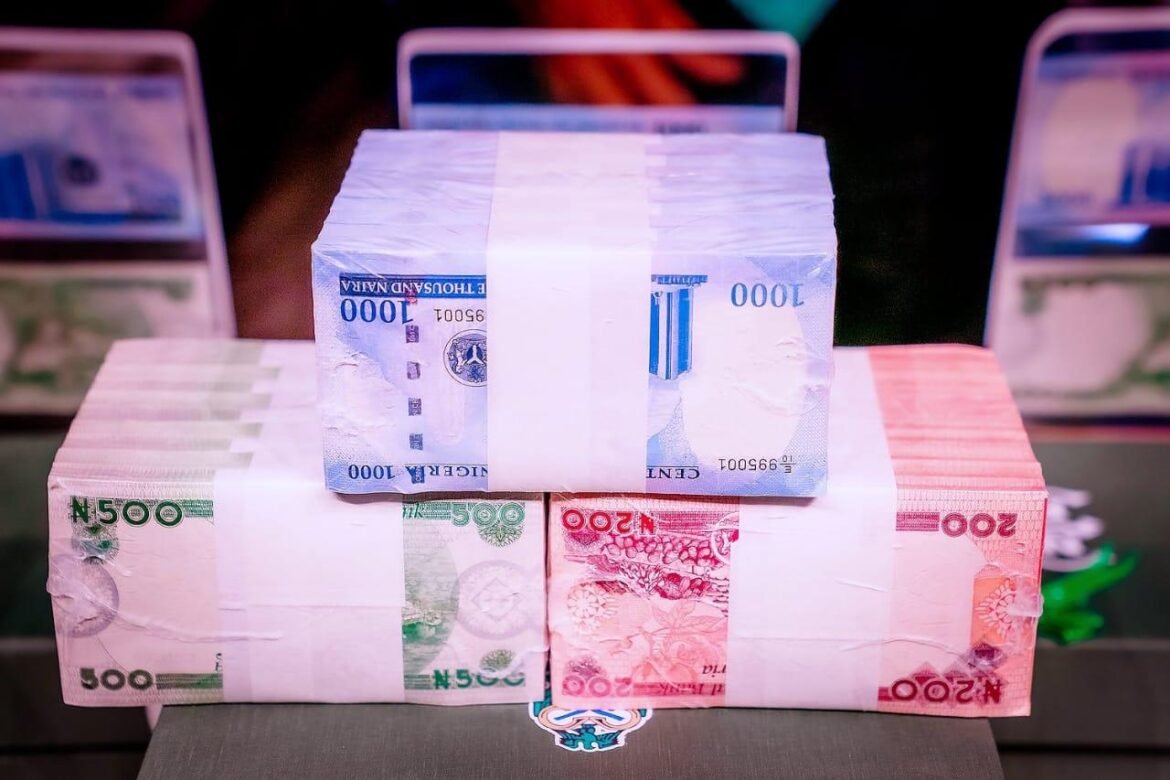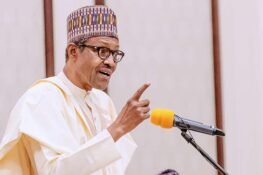There was this post on WhatsApp of a 1970s foreign vacation advertisement by KLM, inviting the Nigerian elite to visit Amsterdam for a few hundred naira.
It is just one of the numerous nostalgic content now common on social media to illustrate how badly the naira has fallen.
Some juxtapose today’s prices of commodities and services against the prices from 30, 40 or 50 years ago to make a point about the terrible fate of the national currency.
You may also have seen such posts, especially the one that claims that the price of a Volkswagen Beetles automobile in the 1970s now compares to the price of a meal in a city restaurant.
They usually blame the new Tinubu administration for the slide in the exchange rate through policies introduced since it came into power during which we have seen one of the worst devaluation of the naira.
It is a disingenuous argument, because all Nigerians are responsible for the fortune of the naira – including past administrations, those who buy goods at supermarkets with imports, those sending kids to study abroad, those seeking medical treatment overseas, those enjoying foreign utility and luxury goods, and even the trader who blames the dollar for the price of garri.
All have sinned and everyone will play a role in making the currency strong again.
Let’s step back to examine how a currency that was the envy of Africa turned into one that Nigerians now blame for their economic distress.
The naira has a history of worsening fortunes attributable to one root cause – oil.
It is not cursed; it just experiences a fate that is logical because it is not supported by strong economic fundamentals.
Most Nigerians like to remember the good old days – a time in the distant 1970s when the naira enjoyed its highest value.
The currency appreciated so much that Nigerians could import any good affordably from anywhere in the world.
The good old days are also tied to Nigeria’s period of oil boom and economic prosperity, with a surge in government revenue and economic growth.
This period saw a significant appreciation of the naira against the US dollar, from ₦0.65/$1 in 1970 to ₦0.74/$1 in 1979.
That is the time most Nigerians older than 50 would like to remember. It was a period in which oil money gave Nigeria a feeling of invisibility.
But it didn’t last for too long.
The oil boom era ended in the early 1980s during the Shagari administration, which introduced “austerity measures” following a decline in oil revenue.
That was the first period of economic hardship that my generation, born in the 50s to 70s, would experience.
This period saw a sharp depreciation of the naira, from ₦0.74/$1 in 1979 to ₦20/$1 in 1989.
By pulling the plug, the Tinubu administration made clear to all the true value of the naira would be market-determined, but it simultaneously created real and imagined problems for Nigerians whose buying power came under attack
You would begin to see that the fortune of the naira was steadily declining as Nigeria’s earnings from petroleum dropped.
Things got worse under military rule in the 1990s.
The Babangida military regime had to implement a Structural Adjustment Program (SAP) under the guidance of the International Monetary Fund (IMF) to slow down the challenges resulting from worsening foreign exchange earnings and the devaluation of the naira.
SAP aimed to stabilise the economy and promote liberalisation, but it also led to further depreciation of the naira, from ₦20/$1 in 1989 to ₦82/$1 in 1999.
Nigerians revolted and the mass protests that followed caused the Babangida administration to gun down innocent Nigerians in cold blood.
Things did not improve through the Abacha years because the price of oil remained flat.
But the 2000s saw a period of relative stability of the naira, with a gradual depreciation from ₦82/$1 in 1999 to ₦133/$1 in 2009.
This period was characterised by surging oil prices, reaching above $100 per barrel, leading to economic growth and improved government finances.
The naira did nothing to improve itself. Nigeria just earned more foreign exchange to prop up its suffering currency.
So many people assume that the Obasanjo, Yar’Adua and Jonathan administrations waved some magic wand to keep the naira steady and they are wrong.
They were just fortunate to be in power at a time when Nigeria’s earnings increased. Simply put, they were fortunate oil prices were high.
The 2010s brought new challenges for the Nigerian economy, including the global financial crisis of 2008-2009 and the oil price slump in 2014-2016.
These crises led to renewed depreciation of the naira, from ₦133/$1 in 2009 to ₦305/$1 in 2016.
Since the naira fluctuated according to the price of oil, it could not hold itself steady for too long
.
Towards the end of the Jonathan administration, cracks started appearing on the wall.
By the time the Buhari administration was sworn in, the naira was in a slump from which it has not recovered.
Adding to the complications was the COVID-19 pandemic which created an economic contraction.
This period saw a continued depreciation of the naira, from ₦305/$1 in 2016 to ₦621/$1 in 2023.
Enter the Tinubu administration, which is taking a lot of bashing for taking deliberate steps to bring far-reaching correction by removing the foundational problems that previous governments lacked the courage to tackle.
Off the gate, the current administration ended the official exchange market, a backdoor for privileged officials to divert foreign currency to the black market and get rich quickly.
The official market was also where the government propped up the naira by supplying dollars through the Central Bank in order to keep the foreign exchange rate wherever it wanted it to be.
By pulling the plug, the Tinubu administration made clear to all the true value of the naira would be market-determined, but it simultaneously created real and imagined problems for Nigerians whose buying power came under attack.
And that is the story of the naira’s troubles.
We must step away from the political narratives and inquire about the fundamental issues leading to the hardships in a market where, today, one dollar is exchanged for more than 1,000 naira.
I will summarise the factors that have contributed to the depreciation of the naira, to the point where it appears worthless against other currencies.
First, the naira is not backed by any reliable earnings from selling Nigerian products on the international market.
Nigeria makes so little foreign exchange because its economy is heavily reliant on oil exports.
Fluctuations in oil prices significantly impact the naira’s value.
And it is worse today because of corruption in the oil business and bad deals by the government.
Secondly, poor economic mismanagement ultimately catches up.
Government policies, such as excessive borrowing and fiscal deficits, contribute to currency depreciation.
Thirdly, Nigeria is not retaining foreign investments.
Poor infrastructure and political instability caused by Boko Haram, religious disturbances, kidnapping and Fulani herdsmen crises deter foreign investors and weaken investor confidence.
Lastly, every country is going through the pangs of global economic conditions.
Inflation is high in every country and even a nation as rich as China is in economic decline.
Nigerians must have a little bit of tolerance for economic pains.
So, the naira is not cursed.
It is just a weak currency that is flowing according to conditions dictated by bad choices and some misfortune.
Until we begin to buy made-in-Nigeria goods in high numbers, and keep our money at home, producing more to sell abroad, just like the Chinese, Americans and Germans do, we will never stop complaining about the value of the naira
I mentioned earlier that all Nigerians are contributing to the economic challenges and here is what I mean – Nigerians are far too attracted to things they cannot afford and do not need.
Get on the streets of Lagos and Abuja, and you will see luxurious cars at densities higher than in any emerging or developing economy.
Even in Mumbai, India, the sight of a BMW or Mercedes Benz catches the eye. In Nigeria, Lexus litter the streets.
We consume what we cannot afford.
Not just that, we prefer goods from market where we need hard currency. By buying more from abroad than we sell to other countries, we bring down the value of the naira.
Until we begin to buy made-in-Nigeria goods in high numbers, and keep our money at home, producing more to sell abroad, just like the Chinese, Americans and Germans do, we will never stop complaining about the value of the naira.
The Nigeria must learn to eat local chicken instead of imported turkey.
Wear Nigerian-made fashion clothes instead of Ralph Lauren and Tommy Hilfiger.
Stop buying an original Chelsea or Manchester United merchandise.
And when he must buy a vehicle, be less luxurious. Don’t spend N20 million on an imported car – that’s a lot of foreign exchange to waste!
Get a Camry instead of a Lexus, a Honda instead of an Acura and a Nissan instead of an Infiniti.
Study in Nigeria instead of abroad and seek medical treatment at home, if possible.
The naira can be strong and we can improve the economy if we don’t pour the money we don’t have into other nations’ pockets.
The only problem we won’t solve is that of the Nigerian who blames the price of garri on the exchange rate.








